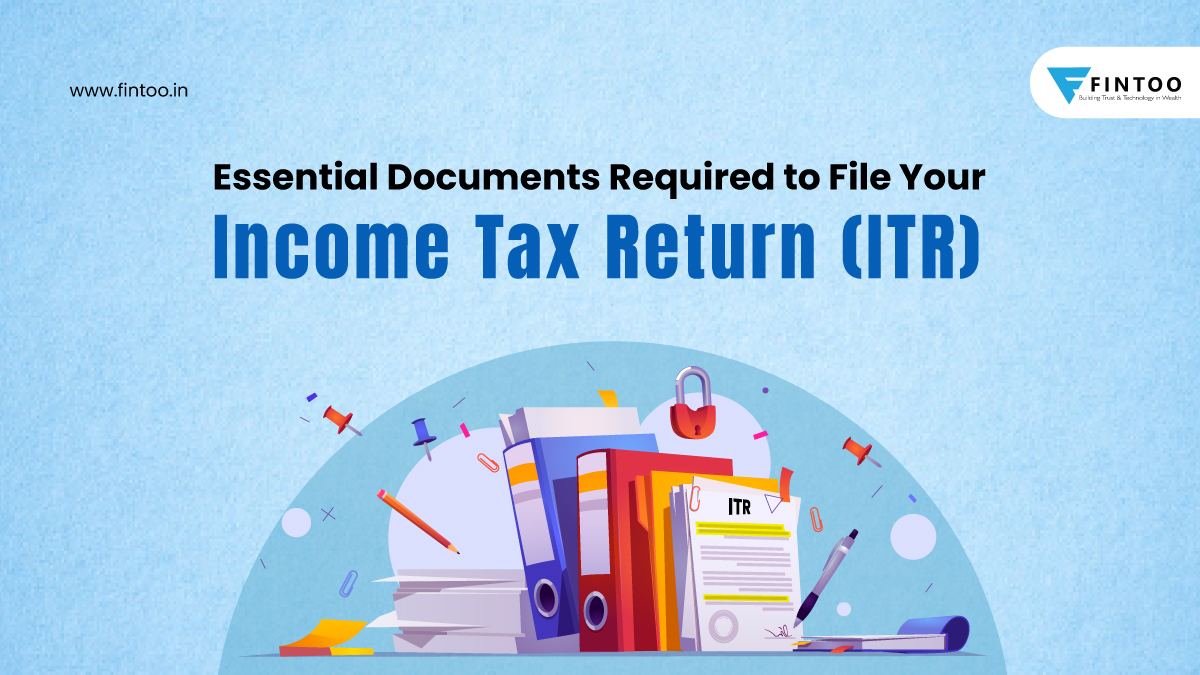5 Essential Documents for Your Tax Return

When it comes to preparing your tax return, having the right documents ready can make the process smoother, ensuring accuracy, compliance, and potentially optimizing your tax refund. Each document serves a crucial purpose in detailing your financial activity for the year, providing insights into your income, deductions, and credits. Let's delve into the five essential documents you need to prepare your tax return efficiently.
Gather Your W-2 Forms

Your W-2 form is perhaps the most critical piece of paperwork for any employed individual. Provided by your employer, it summarizes your total earnings, federal and state taxes withheld, Social Security, Medicare contributions, and other relevant withholdings:
- Earnings: Total wages paid to you during the tax year.
- Tax Withholdings: The amount withheld for federal and possibly state taxes.
- Social Security and Medicare: Contributions to these programs.
🔍 Note: Always double-check your W-2 form for accuracy. Mistakes in your income or tax withholdings can lead to issues with your tax return.
Collect 1099 Forms


Not everyone earns their income from employment alone. Freelancers, independent contractors, and those with additional income streams receive 1099 forms. Here are the common types:
- 1099-NEC: For non-employee compensation, like freelance work or gig economy earnings.
- 1099-INT: For interest income from banks or investment accounts.
- 1099-DIV: Reports dividend income.
- 1099-MISC: Miscellaneous income which might include rent, royalties, or other types of payments.
Itemized Deductions with Schedule A

If you choose to itemize rather than take the standard deduction, Schedule A is vital. It allows you to list various deductions:
- Mortgage interest
- Charitable contributions
- Medical and dental expenses
- State and local taxes
Preparing these documents helps in maximizing your tax deductions, potentially reducing your taxable income:
🔹 Note: Ensure you have receipts, statements, or canceled checks as proof for your itemized deductions to avoid audit issues.
Investment Income and Capital Gains: Schedule D

For those with investments, Schedule D is where you report capital gains and losses. Here’s what to gather:
- Stock transactions: Detailed records of when you bought and sold stocks, bonds, or mutual funds.
- Real estate transactions: Sales of property, including cost basis and sales price.
- Crypto transactions: Records of cryptocurrency trading, including gain/loss calculations.
Your Social Security Benefits (SSA-1099)

If you’re a retiree or receive disability benefits, your Social Security Administration will send you an SSA-1099 form. This document reports the total benefits you’ve received, which may be taxable depending on other income sources:
- Total benefits paid
- Amounts withheld for Medicare or other voluntary withholdings
By organizing these documents, you're on your way to a successful tax filing experience. Each one contributes to a complete picture of your financial situation, allowing for accurate tax calculations and potential savings through deductions and credits. This preparation not only reduces the stress of last-minute filings but also ensures you're taking advantage of all tax benefits available to you.
As you finalize your tax return, remember that meticulous record-keeping, gathering all necessary forms, and perhaps consulting with a tax professional can streamline the process. Consider your tax preparation as an investment in time for future financial health and peace of mind. While it's beneficial to file electronically for faster refunds and tracking, being prepared with your documents physically or digitally can give you confidence in the accuracy of your filings.
What if I didn’t receive my W-2 by the tax filing deadline?

+
Contact your employer first. If you still can’t obtain it, request a wage and income transcript from the IRS or file Form 4852 as a substitute for your missing W-2.
How can I ensure I’m not missing any 1099 forms?

+
Keep track of all your income sources throughout the year. You can also review your records online or contact issuers for missing forms. The IRS has a tool called “Get Transcript Online” which can help you check for unreported income.
What documents should I keep for my tax records?

+
Keep copies of W-2s, 1099s, receipts for deductions, bank statements, investment records, and any other tax-related documents. The IRS recommends retaining records for at least three years after filing.